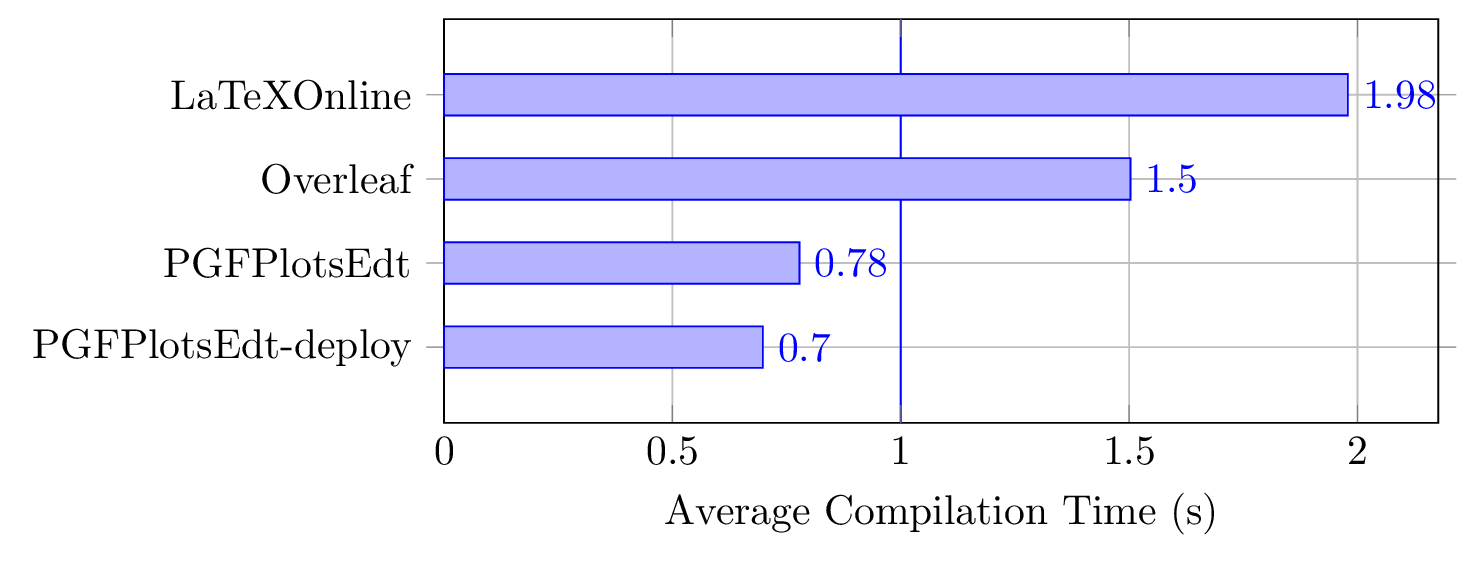Benchmark LaTeX compilation platforms based on PGFPlots examples
You need to run the benchmark on a Linux operating system.
This benchmark contains some submodules, you need to clone them first.
git submodule update --initInstall Anaconda first, and prepare the environment based on the config file pgfplots_benchmark.yml.
conda env update -n pgfplots_benchmark -f pgfplots_benchmark.yml
conda activate pgfplots_benchmarkThe database latex_pgfplots_doctest, which is extracted from pgfplots documentation, should contain 728 examples with approximately 660 compilable files.
To extract the database, you need to install Perl first (or install TeX Live directly), then run the following script:
python extract_dataset.pyThe dataset is not perfect, since the script converted every file into single standalone TeX file without any dependencies. There could be files that could not pass the compilation at all, or require LuaTeX to compile, or require --shell-escape option (mostly deactivated from servers).
You need to start docker before running benchmarks. If your current user does not have the privilege to run docker, you need to switch to the root user first by sudo -s.
Most of the submodules are optimized by local mirrors. Remove those mirrors if you can not initialize docker containers.
Run the script to start the non-deployment version (since it is not a docker version, you need to install TeX Live on your host):
python ppedt_benchmark.pyPass an additional argument to the script to start the deployment version:
python ppedt_benchmark.py --deployYou need to start the docker container following overleaf/services/clsi/README.md manually in a different terminal and stop it manually afterwards docker stop clsi.
Then you could start the benchmark by
python overleaf_benchmark.pyYou need to build the docker image first by
cd latex-online && docker build -t aslushnikov/latex-online:latest .Then you could run the script to start the benchmark:
python laton_benchmark.pyYou could merge all the results by
python merge_result.pyThe result will be in merged_result_times_avg.csv and merged_result_times.csv.
The following result is tested on a typical server with 4 CPU cores and 4GB RAM.
: Average compilation time per file, only the common successful compilation files are taken into account.
: Compilation time of every file, where files with compilation time of 0s are considered to be failed.
Since most of the parts are licensed under GPL-3.0 or AGPL-3.0, this repo maintains the license of AGPL-3.0.

